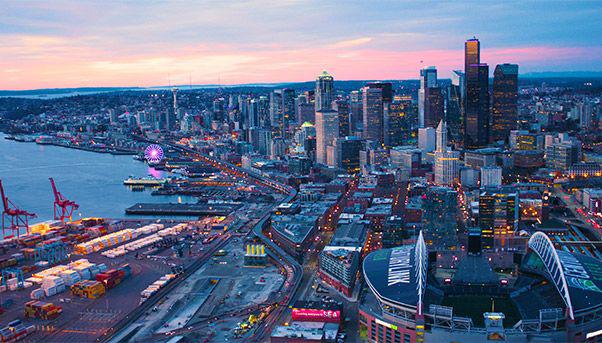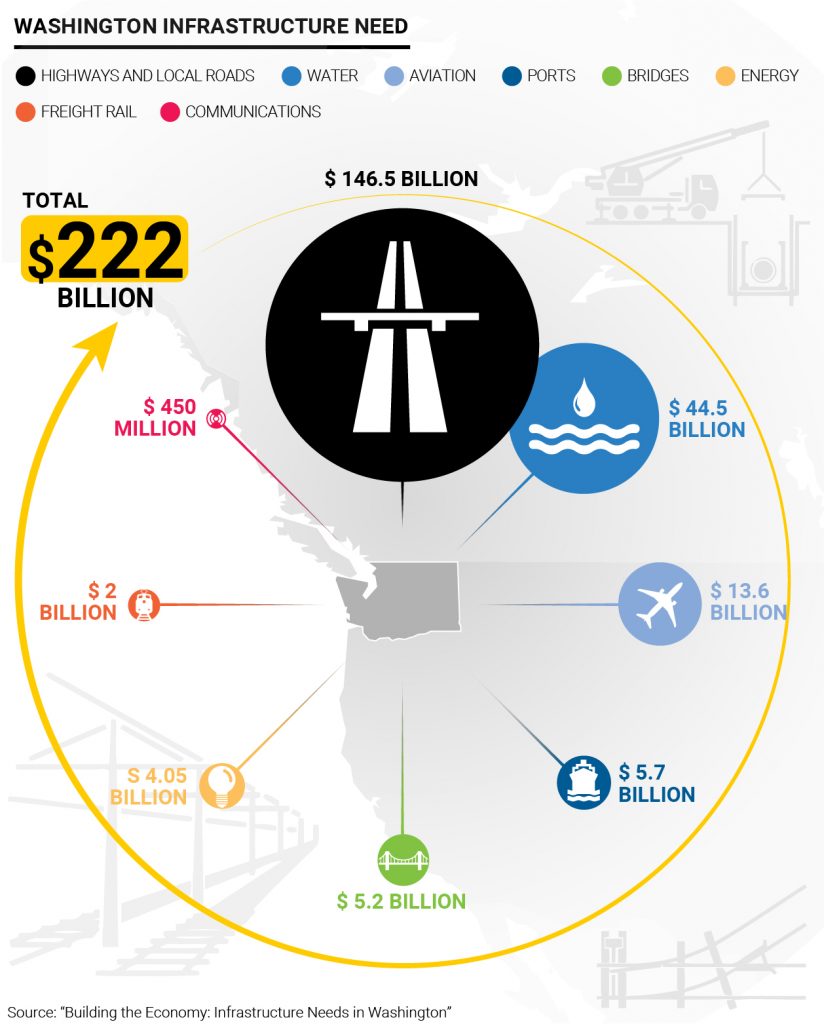
Washington State is renewing its transportation infrastructure network, a weak point for a state that contributes $300 billion to the US economy annually.
The latest announcement is a project costing $705 million to expand one of the busiest commuter routes in Seattle, its largest city, the section of the I-405 from Renton to Bellevue.
The highway will be widened with the addition of new lanes to divide cars from trucks, and new junctions near the 167th Renton Interchange and the NE 6st Street in Bellevue will be built.
The project has been assigned to a consortium including Lane Construction Corporation, the US subsidiary of Salini Impregilo, which is recognized by Engineering News-Record as one of the top 400 operators in US highways construction. Work should start in 2020 and end in 2024. Washington State sees road transport and its road network as the most strategic infrastructure for the further development of its economy.
Washington State’s infrastructure needs
Washington state’s infrastructure situation is critical, according to the American Society of Civil Engineers (ASCE), given that Seattle is the fastest-growing big city in the United States over the past decade.
The study “Building the Economy: Infrastructure Needs in Washington,” updated in April 2019 by the Association of Washington Business (AWB), estimated Washington’s infrastructure needs at $222 billion, which would give an important boost to employment by creating over 706,000-777,000 jobs.
Road infrastructure improvements like the one Lane is building are strategic for the region’s economic development. Every year $70 billion in goods moves through its ports onto its highways.
The road network is fundamental for Washington, and so are other types of infrastructure. Out of the total of $222 billion needed for infrastructure spending, AWB’s report ranks the road network as needing the most attention ($146.5 billion), followed by $34.9 billion for stormwater management and improvements to fish habitats. It says nearly $10 billion should be invested in drinking and waste water management; $13.6 billion for airports; and $5.2 billion for building new bridges.

Infrastructure to support the economy
Despite having 2% of the American population, the state of Washington is responsible for 5% of national exports, ranked fourth in terms of export value after Texas, New York and California. Trade is very important to the state’s economy – the home of Amazon – and an inadequate road network is a drag on wealth.
The AWB’s 2014 study showed Washington residents lose $6.5 billion each year in lost time and wasted fuel because of road congestion. This problem must be addressed in order to prevent the state’s demographic growth from putting further stress on an insufficient infrastructure network. By 2040 the population will increase by nearly 2 million people from the current 7.6 million inhabitants to 9.2 million, according to forecasts compiled by the Washington State government. This inevitable process experienced by many states in the US must be accompanied by a modernisation of infrastructure.
Salini Impregilo in the state of Washington
Salini Impregilo is involved in several sectors in Washington, from roadway modernisation to building new water management systems. In addition to the expansion of the I-405, in early October the Lane Construction Corporation was awarded a $255 million contract in Seattle to build a wastewater management system to reduce polluted storm water overflow from running into the Lake Washington Ship Canal and a nearby lake.
The project involves the construction of a 4.2 km long tunnel (2.7 mile) that will avoid spilling an average of 75 million gallons (283 million liters) of rainwater and wastewater into the canal every year. The new system will reduce the risk of water contamination, which in cases of heavy rainfall risks harming residents and fauna. The work is part Washington State’s commitment to modernise its water network, encouraging efficient infrastructure that can reduce pollution and cut down on the waste of a precious resource like water.


